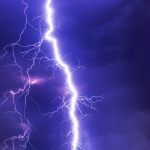Spells in DnD 5e are a nice little alternative to constantly having to hit something repeatedly just for it to die.
That is why, today we will be analyzing how the spell system works in Dungeons and Dragons 5th Edition.
We’ve previously looked at how you can calculate your Spell Save DC and how to calculate your Spellcasting Ability Modifier. I highly recommend you go checking them out. But for that reason, today’s article will be more general.
We’ll go back into specifics in another article. But for today we will look at the basics.
How Spellcasting works, which classes can use spells. And I’ll include a table of available spell slots per level that should cover most classes.
Let’s get right into it, with the most important question.
Table of Contents
What Are Spells in DnD 5e?
Spells are certain magical effects and phenomenon that you can create. That’s my explanation at least. The Player’s Handbook explains them as follows.
“A spell is a discrete magical effect, a single shaping of the magical energies that suffuse the multiverse into a specific, limited expression. In casting a spell, a character carefully plucks at the invisible strands of raw magic suffusing the world, pins them in place in a particular pattern, sets them vibrating in a specific way, and then releases them to unleash the desired effect – in most cases, all in the span of a second…”
There’s more to the entire section, but if you want to finish it you can find it on page 201 of the Player’s Handbook.
What I want to expand a bit more in this section is the uses of spells.
Spells aren’t just for combat, though they serve a big part in it. Spells can also be used for utility. There are many situations that you can get in that can be streamlined if you use a proper spell for the situation.
Having said that, you should be careful with which spells you learn and take with you. As the number of spell slots you have is limited, unless you’re a wizard. So let’s talk about the mechanics for a bit.
The Mechanics of Spellcasting
As mentioned above. Most classes are restricted in their spellcasting by the Spell Slots mechanic. Except the Wizard that is, so we’ll get rid of him first.
The Wizard casts his spells by memorizing them and writing them into his spellbook. The only spells he can cast “off the top of his head” are the cantrips that he knows. For others he has to use his spellbook.
That out of the way, let’s talk Spell Slots.
Spell Slots are a mechanic governing Spells in DnD 5e that limit the amount of spells of a certain type that you can cast. This means that you can’t just cast spells that end the world on each turn.
Spell Slots are tied to class level, instead of character level. So, the amount of levels you have in a certain class is the amount of spell slots you’ll have available to use from that class.
Spell Slots also have levels attributed to them, and many spells state that you can cast them at a higher level if you use a corresponding spell slot. These higher level spells usually come with extra effects to compensate for you using a more valuable spell slot.
Now, to list the classes that can cast spells. It’s important to understand that each class has a different playstyle with their spellcasting, which further develops as they chose a subclass or multiclass.
The classes that can use spellcasting are:
The Bard
The Cleric
The Druid
The Monk
The Paladin
The Ranger
The Sorcerer
The Wizard
The Warlock
The Artificer
Conclusion on Spells in DnD 5e
That basically covers the most important parts of spellcasting.
We looked at what spells are, how they can be used, the mechanics that govern them, and other relevant information.
As always, I advise any player wanting to know more to consult the Player’s Handbook or other relevant literature. Who else knows better than the creators themselves?


